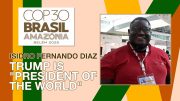
On May 15, Tesla billionaire executive Elon Musk met French President Emmanuel Macron at the Élysée Palace as part of Macron’s “Choose France” initiative, with Musk verifying that Tesla and French officials have been discussing boosted investment for more than a year.
Around 200 business leaders participated in the event in Versailles, close to Paris, pledging to invest a combined 13 billion euros ($14 billion), the highest figure since Macron first held the summit in 2018, his office declared.
Event highlights included talks on enhanced investment in green technology and the aftermath of American tariffs on the European green technology sector.
During the event, Macron positioned France as a future site for Tesla factories, amid rising speculation that Tesla would set up a manufacturing facility at a former nuclear power plant in eastern France. The possible establishment of a facility comes notwithstanding studies that single out consumer affordability problems with electric cars and Europe’s over-reliance on Chinese imports for green technology.
Following the offshoring of electric-car production to the U.S., the European auto industry has taken a huge beating. For instance, in light of attractive American subsidies, Tesla cut down manufacturing in Germany last February. Moreover, the U.S. government under President Joe Biden is mounting pressure on the European electric-car sector by passing protectionist legislation to safeguard American clout in the green tech sector. In response, Macron visited America last year to protest against the so-called Inflation Reduction Act (IRA), which offers grants to electric-car manufacturers only if they use American parts.
After talks with Macron, Musk also interacted with eminent industrialists, such as the head of Indian telecom giant Bharti Enterprises and Nokia CEO Pekka Lundmark. Musk, who also met with Finance Minister Bruno Le Maire, expressed hope that Tesla would make “significant investments” in France in the future, without unveiling a detailed timeline. “No announcement today but I am very impressed with President Macron and the French government and how welcoming they are,” he told reporters.
Le Maire suggested new tax credits for investments in green technology that were recently made public to Musk. When questioned if France was attempting to persuade Musk to construct a gigafactory in France, Le Maire replied that he would prefer to keep details of talks private amid intense competition in Europe. “It’s a battle where no one is doing anybody any favor,” the French minister said.
Earlier, France had tried to persuade Musk to set up a European gigafactory in the country, but Musk selected Germany for his only such plant in Europe so far.
Since March 2022, Tesla’s plant near Berlin has been manufacturing around 5,000 Model Y vehicles weekly, with a maximum capacity of 500,000 cars annually. Nonetheless, while Tesla has started assembling batteries in Germany, the company announced that it would concentrate on cell production in America following the IRA incentives.
During a trip to the United States in December, Macron had a face-to-face meeting with Musk, and said that both sides had had a “clear and honest” discussion on topics such as electric cars and batteries during their hour-long visit.
Musk recently incensed European regulators with his libertarian approach to content regulation that contradicts the EU’s Digital Services Act (DSA) on the pretext of targeting hate speech.
Approved in April 2022, the DSA aims to create an “unprecedented new standard for the accountability of online platforms regarding illegal and harmful [an elastic term, depending whom you ask] content,” based on a press statement released at that time. The DSA also stated that it would supply “better protection for internet users and their fundamental rights.”
Among other conditions under the DSA, large social-media companies have to maintain systems for eradicating content that European national governments deem as illegal and perform regular external audits of the companies’ processes.
Macron hitherto articulated his concerns about Musk’s style of content moderation on Twitter since the Tesla billionaire bought the influential platform. “Transparent user policies, significant reinforcement of content moderation and protection of freedom of speech: efforts have to be made by Twitter to comply with European regulations,” Macron said.
Last November, Thierry Breton, the European commissioner for the internal market, lectured Musk on how the latter should operate Twitter within the EU.
“There is still huge work ahead, as Twitter will have to implement transparent user policies, significantly reinforce content moderation and protect freedom of speech, tackle disinformation with resolve, and limit targeted advertising,” Breton told Musk, Reuters cited, alluding to a readout of that conversation offered by Breton. “Musk and Breton agreed the EU will carry out a ‘stress test’ at Twitter’s headquarters in early 2023 to assess Twitter’s compliance with EU rules,” the news agency elaborated.
Furthermore, the Financial Times reported, according to “people with knowledge of the conversation, Breton had told Musk that Twitter must adhere to a checklist of rules, including ditching an ‘arbitrary’ approach to reinstating banned users, pursuing disinformation ‘aggressively,’ and agreeing to an ‘extensive independent audit’ of the platform by next year.” The same article added that “Musk was warned that unless he stuck to those rules Twitter risked infringing upon the EU’s new Digital Services Act,” and reiterated that “Twitter could face a Europe-wide ban or fines of up to 6 percent of global turnover if it breached the law.”
On Macron’s end, the French president saw his popularity take a nosedive after his unpopular decision to raise the French retirement age, leading to nationwide protests. In the wake of falling public support, the “Choose France” summit has been deemed as his opportunity to reboot his pro-business reform and shift public focus to the electric-vehicle and other low-carbon industries. Macron also said recently that France’s present cash incentive of up to 5,000 euros for buyers of new electric cars would hinge upon their producers adhering to strict low-carbon standards, effectively excluding cars made outside Europe.




